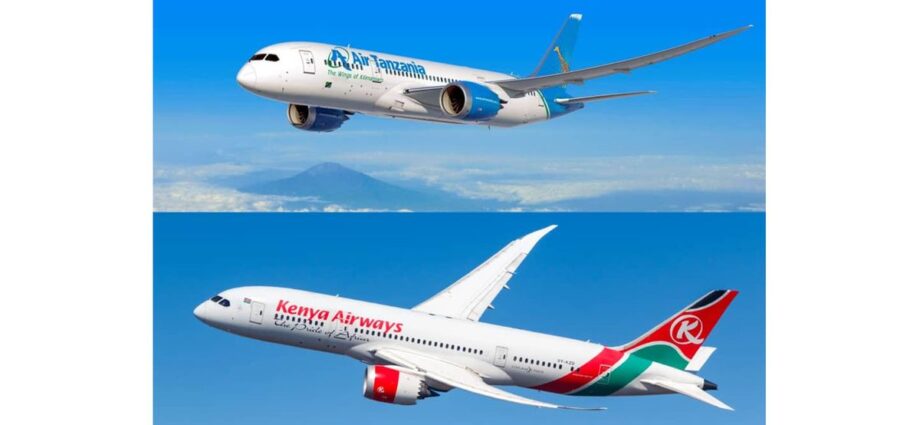Dar es Salaam. Air Tanzania Company Limited (ATCL) and Kenya Airways (KQ) top officials have met in an attempt to explore the possibility of a partnership on cargo transportation.
This comes as ATCL expects to receive its first Boeing 767-300 freighter, with a capacity of 54 tonnes, by the end of this month.
KQ Group managing director Allan Kilavuka, who visited Tanzania recently, said in a statement released by ATCL yesterday that the two airlines could cooperate in different areas.
“Soon Tanzania will receive its first ever cargo plane, which we expect will help in addressing cargo transportation challenges, especially at large volumes,” he said.
“From the available freight, equipment, and expertise, if used properly, we will increase the value and reduce the operating costs of both ATCL and KQ. The presence of the Boeing 787-8 (Dreamliner) and the arrival of the Boeing 767-300F cargo plane open up more commercial opportunities,” said Mr Kilavuka.
According to ATCL’s managing director, Mr Ladislaus Matindi, during Mr Kilavuka’s visit, they held a meeting where they looked at the issues that will help the prosperity of the two airlines and their countries, considering the great needs of the world market.
He mentioned the areas intended to cooperate include the exchange of expertise and conducting practical training without relying on foreign countries in order to increase operational efficiency.
“The African market alone is very large and requires cooperation to exploit it, especially the service of transporting passengers and cargo,” said Mr Matindi.
“We also talked about getting practical training, which now necessitates sending experts to nations throughout Europe for two or three days of training. If this education can be found in the neighbouring countries, it will be better to raise the capacity of the two companies and bring more productivity to the society around them,” he said.
According to him, the expected cargo plane will come at the right time as demand continues to rise due to growing trade and commercial activities.
Apart from perishable products, other items expected to be transported from Tanzania include general cargo services, chicks and fish, pharma services, newspapers and magazines, valuable cargo, express parcels, postal and courier services, dangerous goods and human remains.














